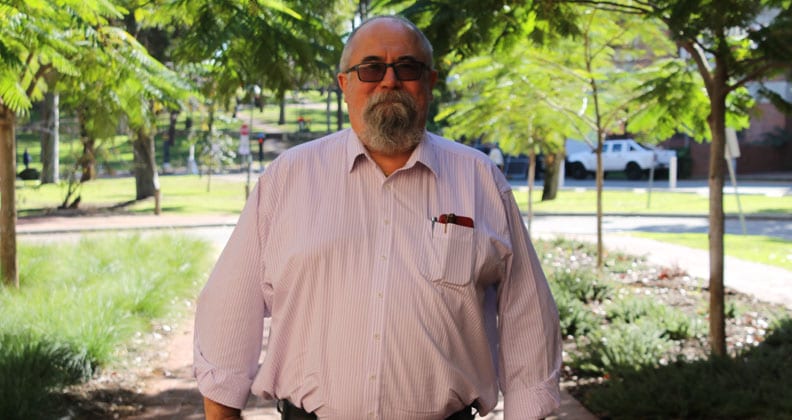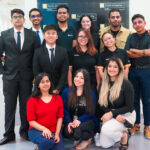For more than 25 years, Curtin University’s Associate Professor, Iain Murray, has been dedicated to assisting people with vision impairment through the development of assistive technology. It’s this dedication that has earned him an Order of Australia.
The Curtin alumnus, now academic, was named on the Queen’s Birthday 2016 Honours List for his extensive service to people who are vision impaired and for his contribution to education in assistive technology as an academic and researcher.
“It’s nice to be recognised, and I think it will help raise the profile of employment and equal opportunity for people with vision impairment” he says.
Murray’s passion for making a difference began decades earlier, when he became increasingly aware of the lack of opportunity and restricted education offered to his brother, who was born blind.
“I thought with the advancement in technology there was something I could do as an engineer to improve the situation”.
Murray, who also volunteers with Guidedogs WA, launched the Cisco Academy for the Vision Impaired (CAVI) in 2002 to deliver Cisco certification training, and after several trials and modifications, commenced delivery to blind students worldwide. The program delivers all lectures, tutorials and hands-on laboratories in a synchronous, instructor-led collaborative manner, and now has students in 15 countries, including India, Sri Lanka and the United Kingdom, with annual enrolments of just over 300 students.
“The impact of CAVI has been life changing for students involved” says Murray. “Unemployment in Australia for those with vision impairment is currently at 62 per cent, with underemployment significantly higher. CAVI has successfully prepared vision impaired students for constructive employment with 75 – 90 per cent employment rates for our overseas cohorts”.
Since its inception, the program has developed from one course to a range, some of which extend beyond computer technology to subjects like employment preparation and cooking.
The future of the program looks bright, with Open University (UK) and Royal National College for the Blind set to commence the expansion of the program into the European/African time zone later this year.



